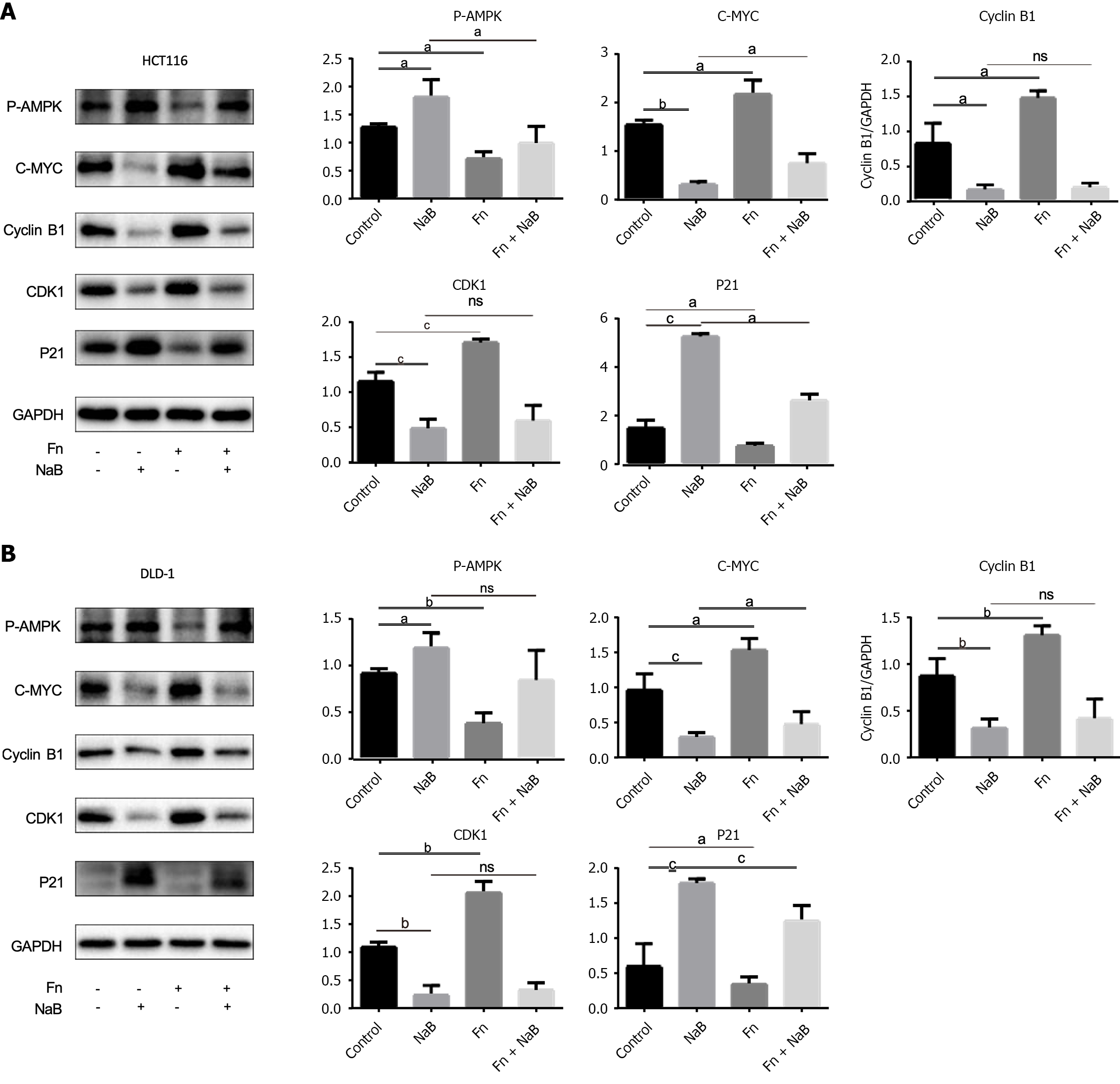Copyright
©The Author(s) 2024.
World J Gastroenterol. Apr 14, 2024; 30(14): 2018-2037
Published online Apr 14, 2024. doi: 10.3748/wjg.v30.i14.2018
Published online Apr 14, 2024. doi: 10.3748/wjg.v30.i14.2018
Figure 8 Sodium butyrate and Fusobacteriumnucleatum regulates the proliferation of colorectal cancer cells through the adenosine monophosphate-activated protein kinase signal pathway.
A and B: Adenosine monophosphate-activated protein kinase (AMPK) was activated in DLD-1 and HCT116 cells by treatment with sodium butyrate (NaB), leading to increased expression of phosphorylated AMPK (p-AMPK), decrease in expression of proliferation proteins such as CDK1, C-myc, and cyclin B1, and increase in expression of cycle arrest protein P21. However, treatment with Fusobacterium nucleatum inhibited the expression of p-AMPK. Data are expressed as mean ± standard deviation, from at least three independent experiments. aP < 0.05, bP < 0.01, cP < 0.001, ns: P > 0.05.
- Citation: Wu QL, Fang XT, Wan XX, Ding QY, Zhang YJ, Ji L, Lou YL, Li X. Fusobacterium nucleatum-induced imbalance in microbiome-derived butyric acid levels promotes the occurrence and development of colorectal cancer. World J Gastroenterol 2024; 30(14): 2018-2037
- URL: https://www.wjgnet.com/1007-9327/full/v30/i14/2018.htm
- DOI: https://dx.doi.org/10.3748/wjg.v30.i14.2018









